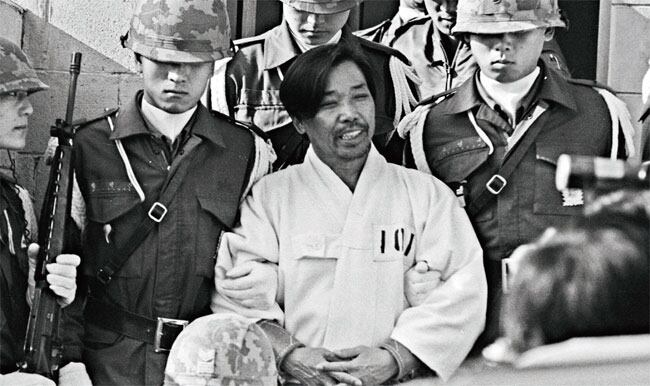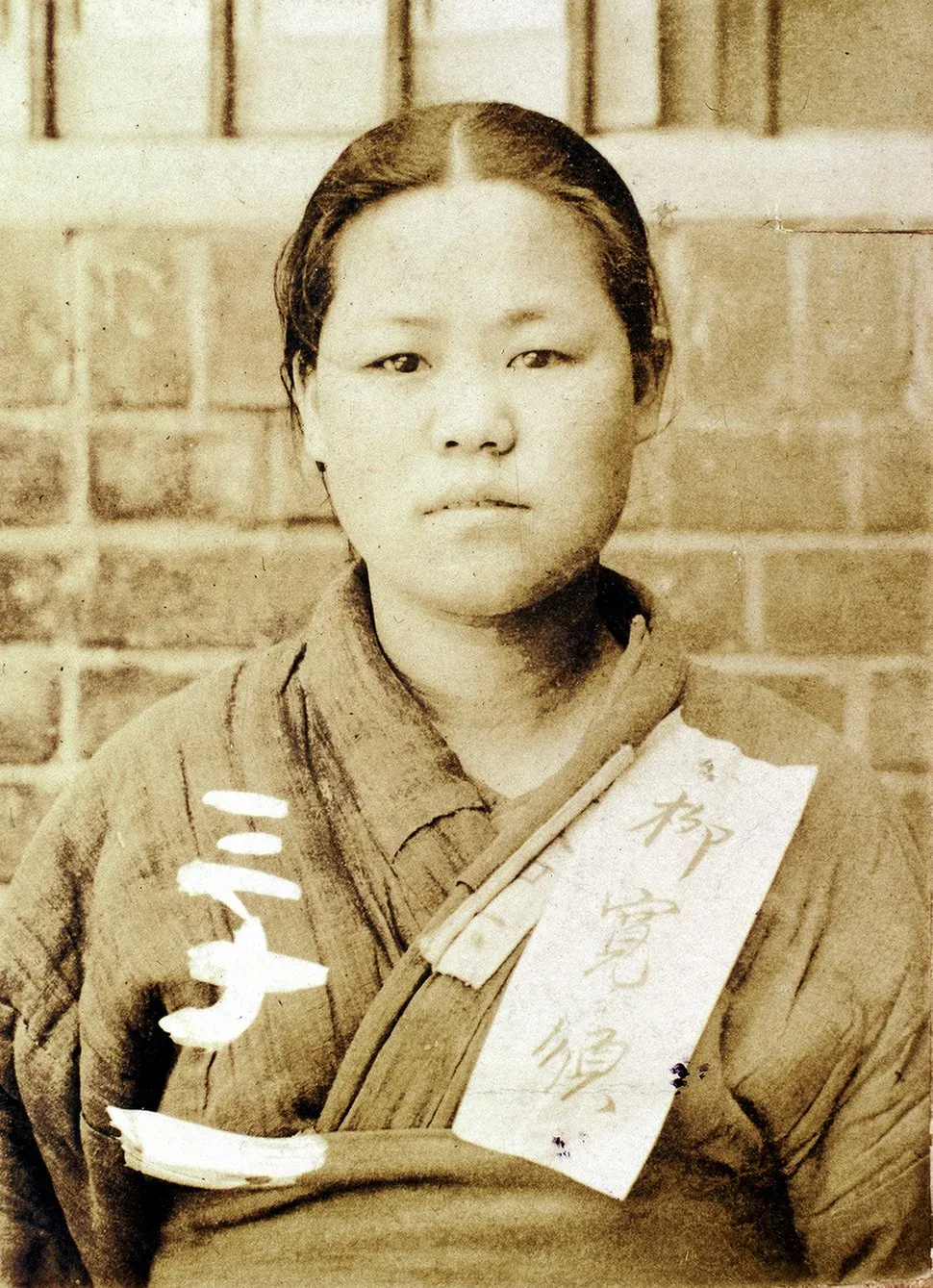1. Protocols for ceremonies and rituals
- Zhu Xi: “Li is the heavenly way which is institutionalised. It refers to the rules of ceremonies conducted by humans.” Commentaries to 1.12 (天理之節文,人事之儀則)
- Rules of ceremonies and rituals dedicated to mountains, rivers or to the ancestors
- King Xun accomplished 5 kinds of ceremonial protocols. 5 kinds of jades, 3 kinds of silk, 2 kinds of live animals and 1 dead animan are used. 修五禮、五玉、三帛、二生、一死贄 (尚書, 虞書, 舜典 4)
- Rules governing rituals and ceremonies conducted in the course of human life 冠婚喪祭 (cappinig, marriage, funeral, ancestral ceremony)
- Filial love (孝 xiao) means “While your parents are alive, serve them according to Li. When they die, do the funeral according to Li. Then, do the ancestral ceremony according to Li.” (生事之以禮;死葬之以禮,祭之以禮) (2.5)
- When Confucius paid a visit to the Grand Temple, he asked about various aspects of the Li (子入大廟,每事問). Somebody said, “Who said the guy from Qu knows Li? When he entered the Grand Temple, he asked about everything.” Master heard this and said, “This is Li.” (3.15)
- “You love lamb. I love Li.” (爾愛其羊,我愛其禮) (3.17)
- The Master said, ‘The Li of Xia dynasty, I can talk about it. Regarding the principality of Hui, there isn’t enough evidence. The Li of Yin dynasty, I can talk about it. Regarding the principality of Song, there isn’t enough evidence. Lack of enough documents and learned people is the reason. Sufficient evidence would have enabled me to talk about the Li of those principalities.’ 子曰:「夏禮,吾能言之,杞不足徵也;殷禮,吾能言之,宋不足徵也。文獻不足故也,足則吾能徵之矣。」 (八佾, 3.9)
- Someone asked the Master to explain the ti sacrifice. The Master said, ‘I don’t know. He who can explain it can explain the whole world just like this’ – showing his palm. 或問禘之說。子曰:「不知也。知其說者之於天下也,其如示諸斯乎!」指其掌。 (八佾, 3.11)
2. Diplomatic protocols, official protocols
- Summit meeting protocol (會遇之禮): The meeting between Duke Ding of Lu and Duke Jing of Qi (史記, 孔子世家 17)
- The Master said, “Guan Zhong (管仲) was indeed a man of small calibre.” Someone said, “Guan Zhong was frugal, you mean?” The Master said, “Mr. Guan had three residences, each complete with a full array of domestic staff. How could he be frugal?” “Guan Zhong at least knew the Li, then?” The Master said, “Only the ruler can have the gate-screen; Mr. Guan also had a gate-screen. Only when a ruler entertains another ruler, can he have a cup stand. Mr. Guan also had a cup stand. If Mr. Guan knew the Li, who didn’t?” (3.22)
- The Master said, “Zang Wen Zhong (臧文仲) had a gigantic tortoise in his house. He also had mountain patterns sculpted on the pillars, duckweed patterns sculpted on the horizontal beams of his house. Did he know anything?” (5.18)
- The Master spoke of Lord Ji (季平子 Ji Ping Zi). “He had the 8 row dance in his garden. How can this be tolerated? How on earth can this happen?” (3.1)
- Master You (有子) said, “Among the uses of Li, bringing people together is the most important. Previous kings’ way elevated Li to the realm of beauty. Li defined the big and the small.” 有子曰:「禮之用,和為貴。先王之道斯為美,小大由之。(1.12)
3. Li and money
- Lin Fang asked about the root of Li. The Master said, ‘Great question! Regarding Li, you should rather be frugal than lavish. Regarding funeral, you should have a genuine sentiment of mourning rather than nicely decorating the graves. 林放問禮之本。子曰:「大哉問!禮,與其奢也,寧儉;喪,與其易也,寧戚。」 (八佾, 3.4)
- The Master said, “Ceremonial caps should be made of Hemp. That is Li. Nowadays people use silk cap, which is economical. I follow the general trend.” 子曰:「麻冕,禮也;今也純,儉。吾從眾。(9.3)
- Zi Gong said, “In poverty, yet not be abject; in affluence, yet not be arrogant. How’s that?” The Master said, “Possible. But still, it is not as good as being poor yet in delight; being rich yet fond of Li.” 子貢曰:「貧而無諂,富而無驕,何如?」子曰:「可也。未若貧而樂,富而好禮者也。」 (1.15)
- Yan Yuan died. Yan Lu inquired whether the Master could sell his carriage to pay for the outer coffin. The Master said, ‘This is not about money. It is about one’s son. When Li(鯉) died, he was buried in a coffin without an outer coffin. I did not go on foot in order to have the outer coffin. As I am in the train of dignataries, I could not go on foot.’ (Lunyu, 11.8)
- The Master said, “If substance overshadows erudition, you become vulgar. If erudition overshadows substance, you become bookish. Only when substance and erudition complement each other, will you become a noble person. 「質勝文則野,文勝質則史。文質彬彬,然後君子。」(雍也 6.18)
- Zhu Xi’s commentary on 文: “When the way manifests itself, we call it wen (文). The entirety of Li and Music are also called 文 (sophisticated culture).” (道之顯者謂之文,蓋禮樂制度之謂)” 論語集注, 子罕 9.5. 文 can also mean books.
- The Master said, ‘The Zhou dynasty modelled itself upon the two preceding ones. What a splendid civilisation (文)! I follow Zhou.’ 子曰:「周監於二代,郁郁(욱)乎文哉!吾從周。」 (八佾, 3.14)
- The Master said, “You may have superb talents like the Duke of Zhou. But if you are arrogant and stingy, the rest of you is not worth looking at.” 子曰:「如有周公之才之美,使驕且吝,其餘不足觀也已。」
- Lord Ji Kang Zi (grand-son of Ji Ping Zi) asked, “What should I do to encourage people to be respectful and loyal?’ The Master said, “Face them with splendour, they will be respectful. Serve the parents and treat the little ones with compassion, they will be loyal. Take the good examples to teach the lackeys, that is to encourage.”
季康子問:「使民敬、忠以勸,如之何?」子曰:「臨之以莊則敬,孝慈則忠,舉善而教不能,則勸。」(2.20) Also see 15.33.
- Zi Xia asked, ” ‘Enchanting smile, revealing the dimples; Beautiful eyes, with dark iris; Plain white, making patterns colourful.’ What does that mean?” The Master said, “Painting is to be done on white.” Zi Xia said, “Li comes afterwards, you mean?” The Master said, “You move me, Shang (商; Zi Xia)! Now we can talk poetry together.” (3.8)
4. Code of conduct; rules of ethics regulating the behaviour
- Li, Li! Do you think I am talking about jade and silk? Music, music! Do you think I am talking about bells and drums?
子曰:「禮云禮云,玉帛云乎哉?樂云樂云,鐘鼓云乎哉?」 (陽貨, 17.11)
- The Master said, “Bowing must be done before going up to the hall. That is Li. These days, bowing is done after climbing on the hall, which is arrogant. Against the general trend, I bow before going up the hall.” 子曰:「拜下,禮也;今拜乎上,泰也。雖違眾,吾從下。」 (子罕, 9.3)
- The Master said, “When modesty is not grounded on Li, it becomes slavish; when cautiousness is not grounded on Li, it becomes cowardly; when courage is not grounded on Li, it becomes disruptive; when honesty is not grounded on Li, it becomes a snare. ” 子曰:「恭而無禮則勞,慎而無禮則葸,勇而無禮則亂,直而無禮則絞。」(8.2)
- If your politeness is close to Li, you can avoid humiliation. 恭近於禮,遠恥辱也 (1.13)
- The Master said, “If it is against Li, do not look, do not listen, do not talk, do not move.” 子曰:「非禮勿視,非禮勿聽,非禮勿言,非禮勿動。」顏淵曰:「回雖不敏,請事斯語矣。」 (12.1)
- The Master said, “When a noble man broadly learns civilisations and constrains himself with Li, he would not cross the line.”
子曰:「君子博學於文,約之以禮,亦可以弗畔矣夫!」 (6.27) (12.15)
- Yan Yuan said, “… The Master effortlessly, naturally guide people. He broadens me with learning and he constrains me with Li … “
顏淵 … 曰:「… 夫子循循然善誘人,博我以文,約我以禮。…」(9.11)
- The Master said, “A noble man would have righteousness as his base. His behaviour will be in accordance with Li. He asserts himself politely. He completes his project reliably. Such is a noble man!”
子曰:「君子義以為質,禮以行之,孫以出之,信以成之。君子哉!」(15.18)
5. What are we bound by? Li (禮) or Xing (刑)?
- Does law bind us? Why?
- The Master said, “Noble persons know well what is right, the petty and the lowly know well what is beneficial.” 子曰:「君子喻於義,小人喻於利。」(4.16)
- J-J Rousseau, Du contrat social, (Liv. 1, Ch. 3, On the law of the strongest; Du droit du plus fort)
- “The force is a physical power; I do not see what morality can result from its effects. To give in to the force is an act of necessity, not of volition; it is at most an act of prudence. In what sense can it be a duty? (La force est une puissance physique; je ne vois point quelle moralité peut résulter de ses effets. Céder à la force est un acte de nécessité, non de volonté ; c’est tout au plus un acte de prudence. En quel sens pourra-ce être un devoir? …)
- However, what is a law which perishes when the force stops. If one has to obey because of force, [that means] one does not need to obey because of duty; and if one is no longer forced to obey, one is no longer obliged to obey. You see that this word law adds nothing to the force. It has no meaning at all here. (Or, qu’est-ce qu’un droit qui périt quand la force cesse ? S’il faut obéir par force, on n’a pas besoin d’obéir par devoir ; et si l’on n’est plus forcé d’obéir, on n’y est plus obligé. On voit donc que ce mot de droit n’ajoute rien à la force ; il ne signifie ici rien du tout….)
- Let us therefore agree that the force does not make law and that one only has an obligation to obey the legitimate powers and nothing else. (Convenons donc que force ne fait pas droit, et qu’on n’est obligé d’obéir qu’aux puissances légitimes.”)
- The Master spoke of Gong Ye Chang (公冶長): “He is marriageable. Although he was imprisoned, it was not his fault.” The Master gave his daughter to him in marriage. 子謂公冶長,「可妻也。雖在縲絏之中,非其罪也」。以其子妻之。(公冶長 5.1)
- The Master said, “A noble man’s standard is the whole world: nothing is correct, nothing is incorrect. Rightness goes with him.” 子曰:「君子之於天下也,無適也,無莫也,義之與比。」(里仁 4.10)
- Zi Gong asked, “If a person is liked by everyone in the village, how about him?” The master said, “Not quite.” “If a person is hated by everyone in the village, how about him?” The Master said, “Not quite. It is not the same as being liked by the good people of the village and hated by the bad people of the village.” 子貢問曰:「鄉人皆好之,何如?」子曰:「未可也。」「鄉人皆惡之,何如?」子曰:「未可也。不如鄉人之善者好之,其不善者惡之。」 (子路 13.24)
- Scrates, Apologia, 39 : For neither in a trial nor in battle is it right that I or any one else should employ every possible means whereby he may avoid death; for in battle it is frequently evident that a man might escape death by laying down his arms, and throwing himself on the mercy of his pursuers. And there are many other devices in every danger, by which to avoid death, if a man dares to do and say every thing. But this is not difficult, O Athenians! to escape death; but it is much more difficult to avoid depravity, for it runs swifter than death. And now I, being slow and aged, am overtaken by the slower of the two; but my accusers, being strong and active, have been overtaken by the swifter, wickedness. And now I depart, condemned by you to death; but they condemned by truth, as guilty of iniquity and injustice: and I abide my sentence, and so do they. These things, perhaps, ought so to be, and I think that they are for the best.
- Joseph Raz, “The Obligation to Obey: Revision and TraditionOpens in a new window“, 1 Notre Dame J.L. Ethics & Pub. Pol’y 139 (1985)
- “If there is ageneral obligation to obey the law, it exists because it was voluntarily undertaken.”
6. Punishment (刑) v. Li (禮) , “rule of law”?
- The Master said, ‘Govern people with politics and align them with punishments, they will evade and have no shame. Govern them with virtue and align them with Li they will have decency and things will be in the right place.’
子曰:「道之以政,齊之以刑,民免而無恥;道之以德,齊之以禮,有恥且格。」 (為政, 2.3)
- If names are not correct, the speech will be convoluted. If the speech is convoluted, tasks cannot be accomplished. If tasks are not accomplished, the Li and the Music will not flourish. If the Li and the Music do not flourish, punishments will be improperly administered. If punishments are improperly administered, people would not know where to stand. 名不正,則言不順;言不順,則事不成;事不成,則禮樂不興;禮樂不興,則刑罰不中;刑罰不中,則民無所措手足。」 (子路, 13.3)
- Duke Ai asked, “What should I do to make people obey?” Confucius replied, “If you promote the upright to grind out the crooked, people will obey. If you promote the crooked to grind out the upright, people will not obey.” 哀公問曰:「何為則民服?」孔子對曰:「舉直錯諸枉,則民服;舉枉錯諸直,則民不服。」 (爲政 2.19) (also see 顔淵 12.22) 錯=cù (grinding stone), cuò (to remove, to dismiss)
- The Master said, “A noble man reflects upon virtue; the petty and the lowly reflect upon land. A noble man reflects upon punishment; the petty and the lowly reflect upon gift.” 子曰:「君子懷德,小人懷土;君子懷刑,小人懷惠。」(4.11)
- Li does not reach down to the ordinary people. Punishments do not reach up to the magnates. (Li Ji) 禮不下庶人,刑不上大夫 (禮記, 曲禮上 68) See Liu Yucai and Luke Habberstad, “The Life of a Text: a brief history of the Liji 禮記 and its transmission”, Journal of Chinese Literature and Culture 1:1-2 (2014).
- It was about that time that Confucius executed a magnate (大夫) Shao Zheng Mao for disrupting the politics. When the news of this manner of governing got around and three months have gone by, merchants selling mutton and porc were not inflating the price, men and women used different sides of the street, lost items remained untouched and visitors from everywhere got what they wanted from the officials without having to offer a bribe. 於是誅魯大夫亂政者少正卯。與聞國政三月,粥羔豚者弗飾賈;男女行者別於塗;塗不拾遺;四方之客至乎邑者不求有司,皆予之以歸。(史記 , 孔子世家 19)



